Screen season
Athletes switch to remote learning to avoid quarantine
Most people wouldn’t think of someone quarantining themselves to be the best way to avoid being quarantined. In fact, that statement alone sounds counterintuitive. However, for student athletes, self-quarantining is exactly the solution.
Most team sports are contact sports and are a high risk for exposure. Athletes are among the students that are most likely to be quarantined due to contact tracing.
Almost every athlete has experienced an unexpected quarantine at least once. This pattern has turned into a major root for frustration amongst students and coaches alike, as athletes are put into quarantine just before a game or competition, and therefore cannot compete. This not only is a disappointment to the quarantined students themselves, but to also their teammates, who struggle to fill in the gaps of the missing players last minute. Therefore, to avoid getting quarantined from their games or competitions, athletes have actually started to begin online learning to lower the chances of exposure and remain safe for competition season. Sapphire Sergeant Macey Norris is among the athletes who decided to go remote.
I wanted to go online so I had a lesser chance of getting quarantined since I had been twice already, which caused me to miss a big performance.
— Macey Norris, sophomore
“I wanted to go online so I had a lesser chance of getting quarantined since I had been twice already, which caused me to miss a big performance,” Norris said. “I had a hard time deciding if I wanted to go online since I would miss out on lunch with friends, my yearbook class, and more. But I had to think about how upset I would be if I didn’t get to perform.”
Many of the athletes can agree that this is not an ideal situation. Being online while also coming up to school everyday for practice can be a conflicting circumstance. Cheer co-captain Ashtyn Arp is also one of the students that made this switch, and while she wasn’t thrilled to leave campus, she wasn’t without the support of her family, coaches, and friends.
“It was my own idea to opt online, however I also talked to a few of my friends and got insight from my parents, coaches and teachers. We all agreed it would be the right decision for me,” Arp said. “I’m just glad I’m still able to go to practice and take care of the job I uphold on my team.”
Many coaches even suggested the switch to their players for the benefit of the whole team. Varsity baseball player Sammy Harris was one of the several athletes on his team to turn to online school after receiving the advice of his coach.
“Coach Andrews suggested it,” Harris said. “I think it was the best decision for the team. With all of our starters on the field it gives us the best chance to win.”
While this isn’t how they expected to spend their competition seasons, these athletes are finding the good in their circumstances, such as a lack of stress and more time to themselves.
“I think the change has been beneficial. I have had time to improve on things outside of cheer, I’ve been less stressed, and my grades have been consistent throughout the switch,” Arp said. “I also like how in virtual learning you can go at your own pace and can do it in the comfort of your own room or house.”
Not only is remote learning beneficial for the student’s athletic career, but often it is also a great academic choice for any busy athlete.
“I love online learning because it gives me a lot more down time for myself, but also extra time for homework during the day,” Norris said.
The switch is not only beneficial to the individual, but to the team as well. Every athlete knows that the loss of a player always affects the team as a whole, especially in a last-minute situation like being unexpectedly quarantined.
“It’s really hard to fill a spot right before a competition, and it looks off when we leave it empty,” Norris said. “I’m in a routine with the rest of the Sapphire Sergeants with only seven people, so the loss of even one dancer would be a hard fix.”
Whether the athlete views online learning as enjoyable or inconvenient, their willingness to make the change shows their dedication to their sport and the good of the team.
“It’s hard for me to find motivation sometimes, but it’s so worth it to be able to compete,” Norris said. “Competition is my favorite season and I always look forward to getting to spend all day with my favorite people.”
Even though these athletes are making the best of remote learning and finding the many positive aspects to it, most of them plan to return next term and finish out the school year on campus.
“I would like to go back so I can be in school again before I graduate, so I’m going to definitely go on campus again when the season ends,” Harris said. “But what keeps me going right now is knowing that I have a season.”
This year is far from what anyone expected, but athletes are not giving up hope that there is a possibility for themselves and their teammates to get to experience a bit more “normalcy” as their seasons end and the school year finishes.
“I am hoping that we can all go back to campus soon and have ‘normal-like’ high school again,” Arp said. “But for now being at home makes it all worth it since I get more of a promise to be able to continue doing what I love.”

Oh hey! Didn’t see ya there.
While you’re here, let me introduce myself: My name’s Shelby. I would say you might have seen me running around the...
Hey there! My name is Katie Borchetta. I am currently a senior and this is my second year being a part of this newspaper staff. I like to think that I...


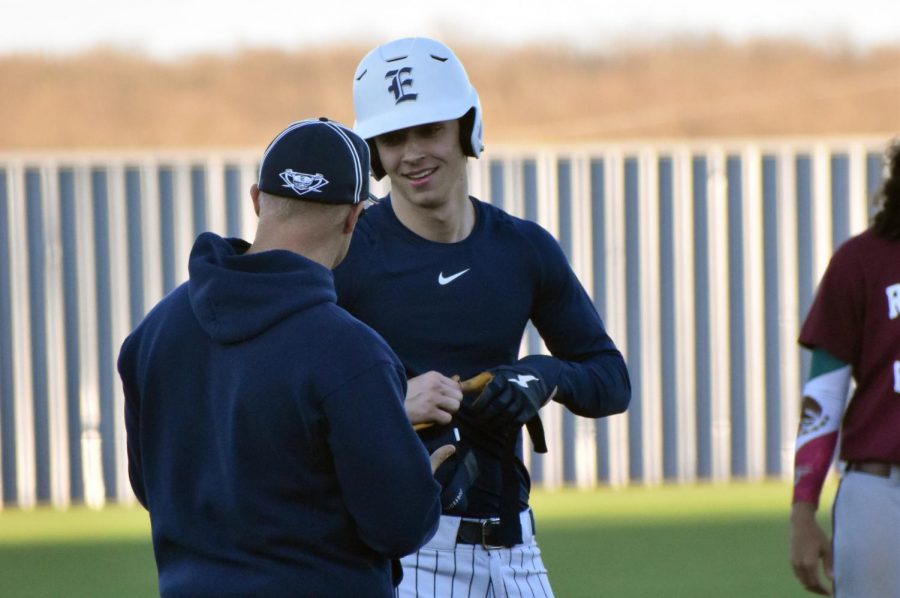
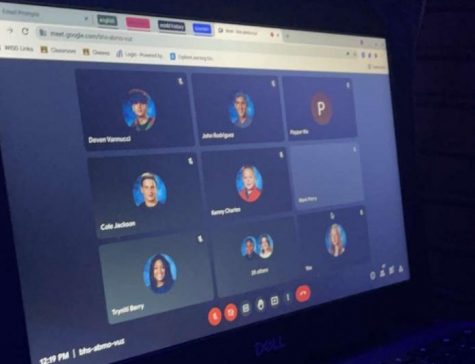
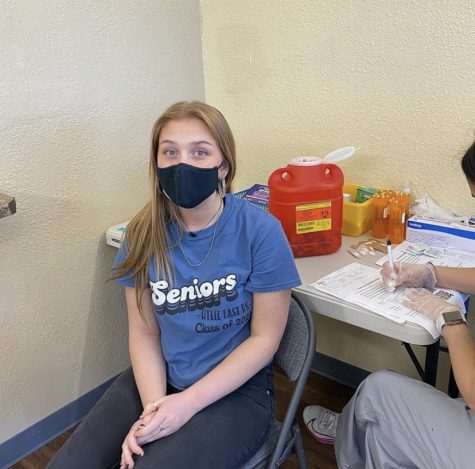
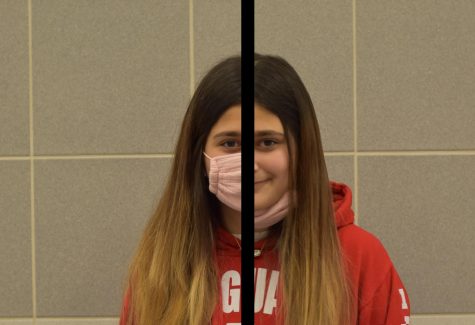
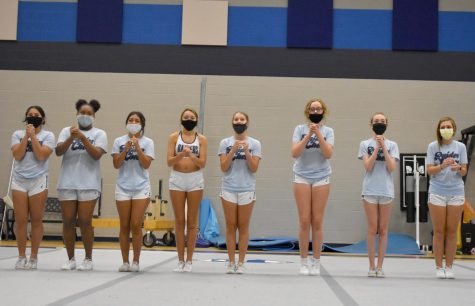

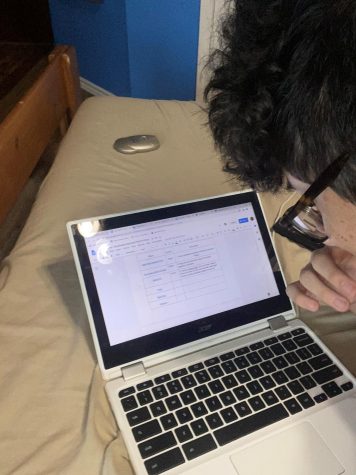
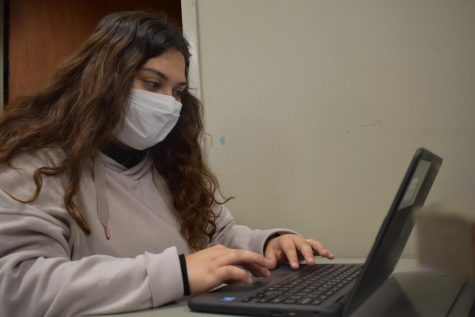
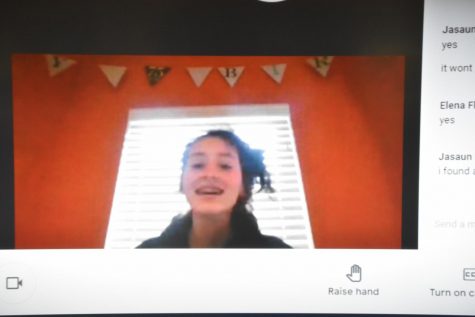
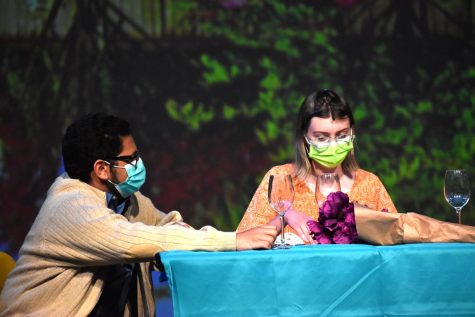

Kylie • Aug 19, 2021 at 10:34 am
I understand the covid rules but when its a sport you really cant stop it just gotta be safe as possible and go out and play, if scared about covid dont play.
Jaylee Paredes • Mar 17, 2021 at 2:45 pm
I think going online to prevent getting quarantined is a really good idea and I wish teammates would’ve thought of doing this when quarantine rates went up.
Heath A Hadley • Mar 17, 2021 at 2:44 pm
If they really want to play and not get quarantined, this is a smart idea to stay safe.
Hannah Hansen • Mar 17, 2021 at 2:43 pm
I love how you show all the different sides of going remote! You talk about both the advantages and disadvantages in depth and give the reader a lot of context and background info!
Cali Scott • Mar 4, 2021 at 2:52 pm
As an athlete, it is super frustrating when people on our team got quarantined. I wished people on our team thought to quarantine themselves before the season started.